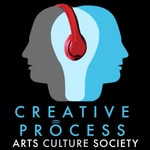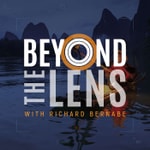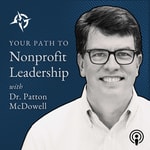The PrimateCast – Details, episodes & analysis
Podcast details
Technical and general information from the podcast's RSS feed.

The PrimateCast
Andrew MacIntosh
Frequency: 1 episode/50d. Total Eps: 95

The PrimateCast features conversations with renowned primatologists, wildlife scientists, conservationists and other professional animal enthusiasts about the processes and products of their work. The podcast is hosted and produced by Dr. Andrew MacIntosh, who's now the Senior Scientist, Wildlife Conservation at the Wilder Institute / Calgary Zoo. The show was incubated by Kyoto University's Center for International Collaboration and Advanced Studies in Primatology (CICASP), where Andrew worked from 2011-2024.
Recent rankings
Latest chart positions across Apple Podcasts and Spotify rankings.
Apple Podcasts
🇨🇦 Canada - naturalSciences
10/04/2025#99🇨🇦 Canada - naturalSciences
09/04/2025#86🇨🇦 Canada - naturalSciences
08/04/2025#68🇨🇦 Canada - naturalSciences
07/04/2025#41🇨🇦 Canada - naturalSciences
06/04/2025#30🇬🇧 Great Britain - naturalSciences
05/04/2025#97🇬🇧 Great Britain - naturalSciences
04/04/2025#79🇬🇧 Great Britain - naturalSciences
03/04/2025#60🇬🇧 Great Britain - naturalSciences
02/04/2025#42🇨🇦 Canada - naturalSciences
15/03/2025#74
Spotify
No recent rankings available
Shared links between episodes and podcasts
Links found in episode descriptions and other podcasts that share them.
See allRSS feed quality and score
Technical evaluation of the podcast's RSS feed quality and structure.
See allScore global : 63%
Publication history
Monthly episode publishing history over the past years.
From Cacophony to Symphony: The Harmonious Interplay of Animal Cognition and Communication with Dr. Tecumseh Fitch
Episode 90
jeudi 23 novembre 2023 • Duration 01:08:16
In today’s installment of the podcast, I’m really excited to share a fascinating conversation I had with Dr. Tecumseh Fitch about the evolution of cognition and communication.
Tecumseh Fitch is Professor of Cognitive Biology at the University of Vienna where he co-founded the Department of Cognitive Biology and plays a leading role in the radically interdisciplinary Vienna Cognitive Science Hub, where they gather biologists, psychologists, neuroscientists, and computer scientists, and mix them with linguists, philosophers and musicologists to really understand cognition and communication in its broadest sense.
But more than that, Tecumseh Fitch is an icon in the fields of cognitive biology and language evolution - he literally wrote the textbook on the The Evolution of Language. His mastery of these topics are on full display in this conversation, as are his storytelling skills.
“one way of seeing cognitive science is it’s the triumph of mentalism over behaviorism” (Tecumseh Fitch)
We ended up with a rich tapestry of insights into how language and cognition evolved, how they shape the lives of animals across the spectrum - from bees to naked mole rats to chimpanzees - and how they’ve set the scene for our own human experience.
So, if you want to hear us meander from American Civil War generals to the question of why dogs can’t dance, or find out why macaques could anatomically ask questions like “will you marry me” but to my knowledge are not known to have ever done so, then stick around for the next hour plus and I guarantee you will not be disappointed.
Other topics in this interview include:
- call production (vocal) learning
- Hoover the Talking Seal
- the evolution of musicality, singing and rhythmicity
- great ape language projects
- AI and animal communication
- On Darwin and why it has taken so long to accept the idea of animal minds
- General William Tecumseh Sherman and Tecumseh Sherman Fitch I
I always learn a lot through the conversations I have for The PrimateCast, but I gotta say that this one had me cognitively locked in. I hope it does the same for you.
Related episodes:
- (#72) A conversation about what music means to us, and monkeys, with Dr. Charles (Chuck) Snowdon
- (#23) Conversations about Communication from the 74th Annual Congres
The PrimateCast is hosted and produced by Andrew MacIntosh. Artwork by Chris Martin. Music by Andre Goncalves.
Here's what you can do to get in touch!
- Connect with us on Facebook, X, or Instagram
- Subscribe where you get your podcasts
- Email theprimatecast@gmail.com with thoughts and comments
If you value the show, leave ratings and reviews wherever it is that you listen, and consider donating by clicking the "Support the Show" link above.
Thanks for being part of The PrimateCast Community!
Unraveling the Secrets of Cold Adaptation and Hybridization in Primates with Evolutionary Anthropologist Dr. Laura Buck
Episode 89
mardi 31 octobre 2023 • Duration 01:19:45
For this episode, I sat down in the studio with evolutionary anthropologist Dr. Laura Buck in the Research Centre for Evolutionary Anthropology and Palaeoecology of Liverpool John Moores University.
Dr. Susumu Tomiya of CICASP also joined the conversation.
After waxing on the plausibility that some ancient hominins in cold climates might have hibernated - spoiler alert! Not very - Laura describes the evolutionary and developmental processes that lead to adaptations and behavioral responses to the cold.
We talk about human cold adaptation and how they relate to those of Neanderthals, and how patterns emerge to help species thrive in thermally-inhospitable places.
Laura describes her current research, and how scientists might have overlooked a potentially critical evolutionary force among mammals: hybridisation.
We touch on the idea of genetic rescue for conservation, and whether the "grolar bear", a hybrid between grizzlies and polar bears, might - and that’s a controversial might! - might allow polar bear genes to survive climate warming in the arctic.
Laura’s work on hybridisation has focused on macaques, but she argues that what we learn from studying hybrid macaque bones can help us understand many of the mysteries of evolution.
She touches on the modern techniques used in geometric morphometrics - simply put, measuring bones in cool ways to understand evolutionary processes - including the future role of AI in the process.
Laura closes with the idea of niche construction, where it’s not only how we and other species adapt to the environments around us, but also how we change those environments ourselves, leading to the conclusion that in many ways we are responsible for our own environments of evolutionary adaptedness.
Other topics covered in the interview:
- Non-adaptationist explanations and just-so stories in human evolution
- Fieldwork fails with technology in scanning and measuring bones
- Nasal air conditioning
- climate adaptations comparing prehistoric humans in Japan with Japanese macaques
- Hybridization and evolution of the primate pelvis
As the Northern hemisphere gea
The PrimateCast is hosted and produced by Andrew MacIntosh. Artwork by Chris Martin. Music by Andre Goncalves.
Here's what you can do to get in touch!
- Connect with us on Facebook, X, or Instagram
- Subscribe where you get your podcasts
- Email theprimatecast@gmail.com with thoughts and comments
If you value the show, leave ratings and reviews wherever it is that you listen, and consider donating by clicking the "Support the Show" link above.
Thanks for being part of The PrimateCast Community!
Walking with gorillas and Dr. Gladys Kalema-Zikusoka, Uganda's first wildlife veterinarian
Episode 80
vendredi 21 avril 2023 • Duration 53:07
This episode of The PrimateCast: Origins is taken from CICASP's International Primatology Lecture Series: Past, Present and Future Perspectives of the Field.
The IPLS is dedicated to providing origin stories told by experienced researchers in primatology and related fields. The lectures are conducted via Zoom within our CICASP Seminar in Science Communication for graduate students of our program at Kyoto University. We are releasing the audio from these lectures right here on The PrimateCast: Origins.
For anyone interested in viewing the video versions of these lectures, head over to the CICASP TV YouTube channel, where you can also watch them live as we stream our Zoom feeds there.
For the 20th international primatology lecture, we invited Dr. Gladys Kalema-Zikusoka to join us and speak about her own origins, as a primatologist and wildlife veterinarian, the first in Uganda, and the story behind Conservation through Public Health (CPTH) and Gorilla Conservation Coffee.
The conversation was recorded on Wednesday, April 5, 2023.
In the talk, Dr. Gladys moves from describing the events in her childhood that foreshadowed her career as a conservationist and wildlife veterinarian through the development of her career and efforts to conserve the endangered mountain gorillas of Bwindi Impenetrable Forest, Uganda, largely by supporting the health of people living in the area.
Topics covered include:
- her new memoir, Walking with Gorillas: The Journey of an African Wildlife Vet (pick up a copy!)
- being a wildlife vet for endangered gorillas and when to intervene
- ecotourism for conservation
- why health and economic stability is key to successful conservation of species
- building the African Primatological Society to support African efforts for research and conservation of African primates
Dr. Gladys also recounts how devastating the COVID-19 pandemic was ecotourism in the region, and how she and others mobilized to ensure that the local community was vaccinated and had access to personal protective equipment such as masks and medical support so that the risk of transmission to the gorillas was minimized.
I found these stories incredibly inspiring, and endlessly insightful. Dr. Gladys’ passion for people and nature comes out in spades, and her model for conservation is one I’d love to see adopted all over the world as it has found a way to succeed through compa
The PrimateCast is hosted and produced by Andrew MacIntosh. Artwork by Chris Martin. Music by Andre Goncalves.
Here's what you can do to get in touch!
- Connect with us on Facebook, X, or Instagram
- Subscribe where you get your podcasts
- Email theprimatecast@gmail.com with thoughts and comments
If you value the show, leave ratings and reviews wherever it is that you listen, and consider donating by clicking the "Support the Show" link above.
Thanks for being part of The PrimateCast Community!
What teeth can tell us about the life histories and behavior of extinct species (and cool science communication!) with Dr. Tesla Monson
Episode 79
mardi 28 mars 2023 • Duration 01:36:47
This episode features a conversation with Dr. Tesla Monson, Assistant Professor in the Department of Anthropology at Western Washington University.
Tesla was in Japan visiting our own Dr. Susumu Tomiya to start some work with our collection of primate bones, so I asked Susumu to join us in the studio as well.
Tesla runs the Primate Evolution Lab at Western Washington University, and has conducted some fascinating research into how we can use bones and fossils and especially teeth to understand the “squishy parts” of our collective evolutionary past that don’t preserve, like the life history traits of an animal or its behavior.
Tesla tells us about some of her discoveries about correlated or patterned evolution that link tooth characteristics with other anatomical and physiological processes and allowed her and her colleagues to hypothesize about things like life history traits and behavior that aren’t preserved in the fossil record.
These include how dental patterns correlate with vitamin D delivery to infants in ancient populations of humans living in Arctic Beringia, or with prenatal growth rates and endocranial volume in catarrhine primates.
After hearing Tesla talk about these things I became a lot more interested in teeth myself, and what they can tell us about extinct species! But there’s a lot in this interview beyond teeth for anyone interested in evolution and the diversity of life, how scientists are often just like detectives, and just generally about being a whole person.
While discussing Tesla’s efforts in science communication, we talk about the phenomenon of imposter syndrome, which can affect anyone in any role but seems to be particularly common among academics, and especially in early career researchers. All three of us seemed to have something to say on the topic, as it’s an ongoing struggle for so many of us and any encouragement and open discussion about it may land with someone in need at the right time.
We close by looking at her current projects on inclusion in and out of science, such as
- her symposia in Integrative Human Evolution, geared toward early career researchers and interdisciplinarity,
- her involvement with the Bearded Ladies, who are out there to show the world that, to quote Tesla, “You don’t have to have a beard to be a scruffy paleontologist out in the field”,
- and her efforts to highlight the key roles played by historical women in Washington, which she calls Washington Women.
Some other things that come up in the interview include:
The PrimateCast is hosted and produced by Andrew MacIntosh. Artwork by Chris Martin. Music by Andre Goncalves.
Here's what you can do to get in touch!
- Connect with us on Facebook, X, or Instagram
- Subscribe where you get your podcasts
- Email theprimatecast@gmail.com with thoughts and comments
If you value the show, leave ratings and reviews wherever it is that you listen, and consider donating by clicking the "Support the Show" link above.
Thanks for being part of The PrimateCast Community!
Fairness and economic behavior in human and nonhuman primates with distinguished professor and primatologist Dr. Sarah Brosnan
Episode 78
mercredi 15 mars 2023 • Duration 50:53
“You should always collaborate with your friends!”
- Sarah Brosnan
In this episode I am really excited to be able to bring to you an interview with Dr. Sarah Brosnan, Distinguished Professor of Psychology, Philosophy and Neuroscience in the Language Research Center at Georgia State University.
Dr. Ikuma Adachi, from Kyoto University's Center for the Evolutionary Origins of Human Behavior, also joined us for the interview.
Sarah Brosnan is probably best known for her work on inequity aversion in primates. Her early experiments published in Nature [Monkeys reject unequal pay] showed that capuchin monkeys are sensitive to what others receive for the same amount of work and reject unequal pay.
Note that the video of these experiments is absolutely delightful and should be required viewing for every student of nature, the nature of the mind, and probably bratty child out there. Check it out here: capuchin monkey fairness experiment.
In the interview, Sarah explains how inequity aversion is likely a key component of social knowledge, and likely evolved as a suite of abilities linked to prosocial behavior.
After discussing some of the nuts and bolts of experimentation and the challenges of interpretation, we move into Sarah's more recent line of research: comparative experimental economics.
What's fascinating about this work is that Sarah is testing multiple different species of primate - capuchins, macaques, chimpanzees, and humans - by setting them up with more or less identical experimental situations.
These experiments are really allowing Sarah and her colleagues to learn the mechanical foundations of how we make decisions; and how they may be the same or very different foundations to those of other species even when the outcomes - like being able to maximize the payoff in any given game - look exactly the same!
I learned a lot from Sarah in this interview, and had an absolute blast with this conversation! I hope you all enjoy this interview with Dr. Sarah Brosnan as much as I did.
Other topics discussed in the interview:
- “Let the monkeys show you the way” as a foundation for scientific discovery
- Maximizing interpretability through well-designed experiments … and follow-ups!
- How widespread inequity aversion is in the animal kingdom
- Whether spite is likely among the suite of emotionally-driven behaviors available to animals
- Getting into the weeds with games for game theorists
- Being careful not to confuse cause and consequence as mechanism and outcome
- testing cognition in group settings and all the chaos that brings
One final thought. At 24:14 of the
The PrimateCast is hosted and produced by Andrew MacIntosh. Artwork by Chris Martin. Music by Andre Goncalves.
Here's what you can do to get in touch!
- Connect with us on Facebook, X, or Instagram
- Subscribe where you get your podcasts
- Email theprimatecast@gmail.com with thoughts and comments
If you value the show, leave ratings and reviews wherever it is that you listen, and consider donating by clicking the "Support the Show" link above.
Thanks for being part of The PrimateCast Community!
A Conversation about animal cognition and emotions, anthropomorphism versus anthropodenial, and the power of storytelling in science with distinguished Professor Emeritus Dr. Frans de Waal
Episode 77
vendredi 27 janvier 2023 • Duration 01:07:26
This episode of The PrimateCast: Origins is taken from CICASP's International Primatology Lecture Series: Past, Present and Future Perspectives of the Field.
The IPLS is dedicated to providing origin stories told by experienced researchers in primatology and related fields. The lectures are conducted via Zoom within our CICASP Seminar in Science Communication for graduate students of our program at Kyoto University. We are releasing the audio from these lectures right here on The PrimateCast: Origins.
For anyone interested in viewing the video versions of these lectures, head over to the CICASP TV YouTube channel, where you can also watch them live as we stream our Zoom feeds there.
Unlike our normal format for these lectures, in which our guests normally provide us with an origin story lecture, we instead ran IPLS 18 as an interview with Distinguished Professor Emeritus Dr. Frans de Waal. Frans almost needs no introduction, but you can find out more about him through some links to Emory University here and here, and on his Wikipedia page here.
The interview was conducted by Dr. Michael Huffman and yours truly, with a smattering of questions from participants, including students and postdoctoral researchers affiliated with Kyoto University’s program in primatology and wildlife science.
The conversation was recorded on Wednesday, January 18, 2023.
In the interview, we talk about:
- his book Chimpanzee Politics and communicating science and writing popular books
- English, writing and storytelling as a non-native English speaker, and extending rigorous scientific research into popular science prose
- the responsibility of scientists to communicate their findings when they relate to society and how their ideas might be coopted for certain agendas end users may have - think Konrad Lorenz falling in with eugenicists or Richard Dawkins calling us 'slaves to our genes'
- primate culture and empathy for Japanese primatology
- how our views of the pillars of primate society have evolved from competition, aggression, dominance and conflict to peacemaking, conflict resolution and cooperation
- drawing the line between anthropomorphism and anthropodenial, and what components of animal cognition and emotion overlap with those of humans
- how measuring emotions in animals is not the same thing as understanding their 'feelings', for example grief, which was asked about by an audience member
- and much, much more!
The PrimateCast is hosted and produced by Andrew MacIntosh. Artwork by Chris Martin. Music by Andre Goncalves.
Here's what you can do to get in touch!
- Connect with us on Facebook, X, or Instagram
- Subscribe where you get your podcasts
- Email theprimatecast@gmail.com with thoughts and comments
If you value the show, leave ratings and reviews wherever it is that you listen, and consider donating by clicking the "Support the Show" link above.
Thanks for being part of The PrimateCast Community!
Why you should care deeply about primate eponyms with Dr. Elaine Guevara
Episode 76
jeudi 15 décembre 2022 • Duration 01:11:40
This episode is all about where, how and why primates got their names!
No, we won't be talking about popular primates like Kanzi the bonobo or Pan-kun (if you're in Japan), but rather the terms we use for the common and scientific names of primates across their taxonomy.
Dr. Elaine Guevara is a Lecturer in Evolutionary Anthropology at Duke University's Trinity College of Arts & Sciences, and in 2021, she coauthored a study published in the International Journal of Primatology called “Whom do primate names honor: rethinking primate eponyms” (Open Access), along with Chloe Chen-Kraus, Casey Farmer, Katherine Meier, David P. Watts & Jane Widness.
-----------
Eponym (noun): one for whom or which something is or is believed to be named.
-----------
In the interview, we do a deep dive into primate names and the various contexts within which they are given. Key topics of discussion include:
- colonial roots of primate naming
- honorifics, hero worship and challenge of getting it right
- decolonizing science and having dialogues toward greater inclusivity in science and society
- Verreaux's sifaka, Geoffroy's spider monkey, Dian's tarsier and the Bemaraha woolly monkey (a.k.a. Avahi cleesei), whose epithet (species name) honors John Cleese!
- pronunciation and the challenge of Anglicization
- better ways to name as conceived by the international primatological community
-----------
CORRECTION
At 1:00:02 of the interview Elaine notes that the term 'maias' - suggested by JM Rubis (2020) to replace the established common name orangutan - is an indigenous Malay term, when in fact it is the term used by the Iban, a group indigenous to the island of Borneo.
-----------
For more information, and to contribute to understanding primate names and what we should do about them, explore these links!
- Primate Eponyms website - learn more about primate namesakes and contribute if information for your species is missing!
- Survey for primatologists (at all career stages!) where you can provide your thoughts on primate eponyms. CLICK HERE!
- The orang utan is not an indigenous name: knowing and naming the maias as a decolonizing epistemology (Paywall) by Jane M. Rubis (2020).
- Decolonizing the Ourang-Outang (Open Access) by Maeve Fairbanks, Luke D. Fannin & Nathaniel J
The PrimateCast is hosted and produced by Andrew MacIntosh. Artwork by Chris Martin. Music by Andre Goncalves.
Here's what you can do to get in touch!
- Connect with us on Facebook, X, or Instagram
- Subscribe where you get your podcasts
- Email theprimatecast@gmail.com with thoughts and comments
If you value the show, leave ratings and reviews wherever it is that you listen, and consider donating by clicking the "Support the Show" link above.
Thanks for being part of The PrimateCast Community!
A half-century journey into primatology and wildlife biology with Professor Mewa Singh
Episode 75
jeudi 1 décembre 2022 • Duration 01:22:44
This episode of The PrimateCast: Origins is taken from CICASP's International Primatology Lecture Series: Past, Present and Future Perspectives of the Field.
The IPLS is dedicated to providing origin stories told by experienced researchers in primatology and related fields. The lectures are conducted via Zoom within our CICASP Seminar in Science Communication for graduate students of our program at Kyoto University. We are releasing the audio from these lectures right here on The PrimateCast: Origins.
For anyone interested in viewing the video versions of these lectures, head over to the CICASP TV YouTube channel, where you can also watch them live as we stream our Zoom feeds there.
For the 12th international primatology lecture we invited distinguished professor Dr. Mewa Singh to share his origin story with us. This lecture took place on May 25, 2022.
-----
"One need not have a formal degree in a discipline, to become a specialist in that discipline"
-Mewa Singh, 2022
-----
Dr. Mewa Singh is Life-Long Distinguished Professor in the Department of Psychology and Institute of Excellence at the University of Mysore. Throughout his career he has investigated the behavior and ecology of mammals, most notably primates, and has been heavily invested in their conservation and management in different regions throughout India.
In this lecture, he describes his activities related to the conservation of primates in India, particularly through distinctions between forest-dependent species and others that are more adaptable to human-dominated landscapes. He then describes various behavioral adaptations that have allowed more commensal macaque species to thrive in urban settings.
Key topics that come up are:
- genetic diversity in lion-tailed macaques with respect to habitat fragmentation
- protecting habitat and regrowing wildlife corridors with rainforest trees
- primate commensalism and behavioral plasticity in urban environments
- acquisition of novel foraging strategies as adaptations to extracting human resources
He begins the lecture talking about how he became a wildlife biologist and primatologist, and that it wasn't exactly a straight line or so predetermined from a young age. And he closes with some further advice about studying primates ethically in human landscapes.
In between, he provides numerous pieces of advice and bits of wisdom that will no doubt have value for all listeners.
Enjoy!.
The PrimateCast is hosted and produced by Andrew MacIntosh. Artwork by Chris Martin. Music by Andre Goncalves.
Here's what you can do to get in touch!
- Connect with us on Facebook, X, or Instagram
- Subscribe where you get your podcasts
- Email theprimatecast@gmail.com with thoughts and comments
If you value the show, leave ratings and reviews wherever it is that you listen, and consider donating by clicking the "Support the Show" link above.
Thanks for being part of The PrimateCast Community!
A conversation about what makes us human, paleontological time machines and bigging up science education with Dr. Briana Pobiner
Episode 74
mardi 15 novembre 2022 • Duration 01:06:49
This episode features paleoanthropologist and science educator Dr. Briana Pobiner.
Briana works in the Department of Anthropology at the Smithsonian National Museum of Natural History. She is also Associate Research Professor in the Department of Anthropology at George Washington University.
Briana’s anthropological research focuses on understanding the human diet, and changes therein over the past few million years. Her work on science education and communication focuses on promoting understanding of evolution through examples from our own bushy branches of the evolutionary family tree.
In the interview, we cover a range of topics including:
- the question "what makes us human?"
- reconstructing the diets of our ancestors using paleontological 'time machines'
- ancient hominins sharing the savannas - and food? - with ancient carnivores
- busting some common myths, like the idea of linear evolution and the 'paleodiet'
- balancing doing, teaching and communicating science to broad audiences
- how to go about becoming a strong communicator of scientific ideas
- being a mom in the field with kids
There is so much in this interview for everyone, and we couldn't be happier to be sharing it on The PrimateCast.
Here are a few links to help you learn more about Briana Pobiner and her work:
- Briana's professional bio
- Briana's research website
- Answer the question "what does it mean to be human" yourself on the Smithsonian Human Origins Program’s website
- A brilliant 2016 paper on accepting, understanding, teaching and learning evolution in the US
- Briana's academic page on GWU's website
Photo Credit: Smithsonian
The PrimateCast is hosted and produced by Andrew MacIntosh. Artwork by Chris Martin. Music by Andre Goncalves.
Here's what you can do to get in touch!
- Connect with us on Facebook, X, or Instagram
- Subscribe where you get your podcasts
- Email theprimatecast@gmail.com with thoughts and comments
If you value the show, leave ratings and reviews wherever it is that you listen, and consider donating by clicking the "Support the Show" link above.
Thanks for being part of The PrimateCast Community!
A life among the apes with primatologist Dr. John Mitani
Episode 73
mardi 1 novembre 2022 • Duration 58:52
This episode of The PrimateCast: Origins is taken from CICASP's International Primatology Lecture Series: Past, Present and Future Perspectives of the Field.
The IPLS is dedicated to providing origin stories told by experienced researchers in primatology and related fields. The lectures are conducted via Zoom within our CICASP Seminar in Science Communication for graduate students of our program at Kyoto University. We are releasing the audio from these lectures right here on The PrimateCast: Origins.
For anyone interested in viewing the video versions of these lectures, head over to the CICASP TV YouTube channel, where you can also watch them live as we stream our Zoom feeds there.
For the 8th international primatology lecture we invited Dr. John Mitani to share his origin story with us. This lecture took place on January 27, 2022.
-----
"If you find good [mentors], lean on them"
-John Mitani, 2022
-----
John Mitani is Professor Emeritus in the Department of Anthropology at the University of Michigan, who has conducted over 40 years of research on gibbons, orangutans, gorillas, chimpanzees, and bonobos.
He is the 2022 recipient of the Charles R. Darwin Lifetime Achievement Award from the American Association of Biological Anthropologists. And, listening to his lecture really gives one a sense of why! So much of his work found its way into the textbooks.
In the lecture, he shares many of the key discoveries he and his colleagues have made about social behavior in primates. These covered topics like:
- territoriality and indices of home range defensibility
- how ape vocalizations play a role in territorial defense and spacing
- how male orangutans can have hugely different mating strategies that coincide with huge differences in body size and other physical features
- how chimpanzee social behavior and alliances are determined by genetic relationships among males
He then goes on to provide some sage advice for any up-and-coming scholars out there. He spends a good deal of time acknowledging his mentors, and implores all of us to do the same. He also acknowledges the importance of serendipity, and the need to be opportunistic in the face of new observations.
With eloquence and humility, John tells us the story of his career, in the hopes it can provide some inspiration to those of us out there on similar paths.
One thing's for sure: I sure felt inspired after hearing him speak!
The PrimateCast is hosted and produced by Andrew MacIntosh. Artwork by Chris Martin. Music by Andre Goncalves.
Here's what you can do to get in touch!
- Connect with us on Facebook, X, or Instagram
- Subscribe where you get your podcasts
- Email theprimatecast@gmail.com with thoughts and comments
If you value the show, leave ratings and reviews wherever it is that you listen, and consider donating by clicking the "Support the Show" link above.
Thanks for being part of The PrimateCast Community!









